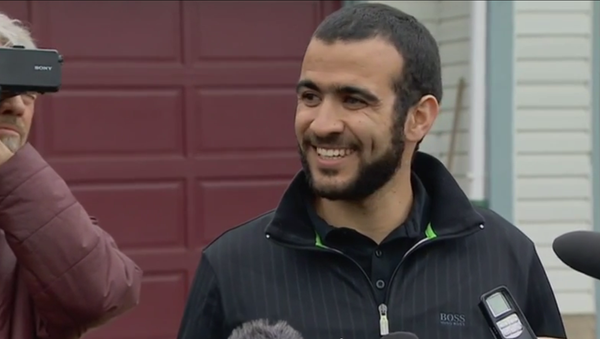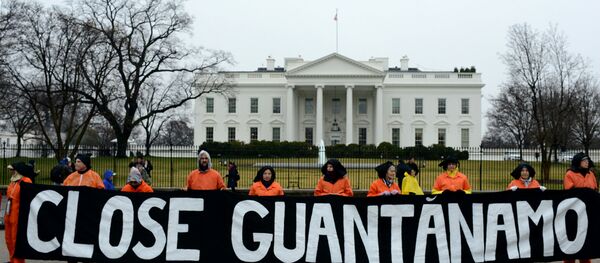The Toronto native and former Guantanamo Bay detainee was held in custody from 2002, accused — and ultimately convicted — of throwing a grenade in Afghanistan that killed an American soldier when he was 15 years old. He was subsequently imprisoned at Bagram Prison, then transferred to Guantanamo Bay, where Khadr says that interrogators forced a false confession and plea deal through eight years of torture.
Khadr holds the unfortunate title of being the youngest detainee ever sent to Guantanamo Bay, and the first juvenile to be prosecuted for war crimes in the US since World War II.
“The torture of Omar included prolonged sleep deprivation, beating, suspension from his wrists while his wounds were still fresh, threats of gang rape, hooding, intimidation by dogs, forced nakedness, body cavity searches, forced feeding, short-shackling in stress positions, prolonged solitary confinement, cell conditions of extreme cold, noise, constant light and withholding of medical treatment,” the supporters’ group Free Omar states on their website.
Khadr was transferred back to Canada in 2010 after being sentenced by an American military tribunal, and has been freed on bail as he appeals the conviction. He was serving his time at Bowden Institution at the time of his release last month.
The Utah judge awarded in favor of the plaintiffs by default after Khadr did not respond to the lawsuit.
Khadr has said he aims to prove that he is a good person and is currently living with his lawyer, Dennis Edney, and his wife.
“There’s nothing I can do about the past but I can do something about the future,” he stated after his release.
The Supreme Court in Canada has sided with Khadr three times, most recently in May when the court ruled that he should be sentenced as a juvenile. They had previously ruled that Canadian officials broke the law when sharing information about him with his captors at Guantanamo Bay, and that his constitutional rights were violated when Canadian agents interviewed him while knowing about his torture.
The Salt Lake City lawyer, Laura Tanner, who represented the soldiers has stated that collecting money from the torture victim could be difficult, but that she is looking for a Canadian law firm that will help her to begin the process, the Associated Press reported.




